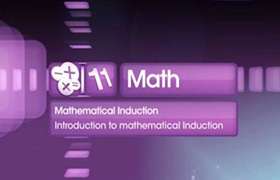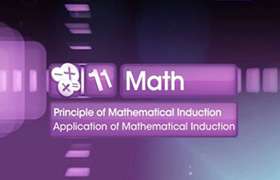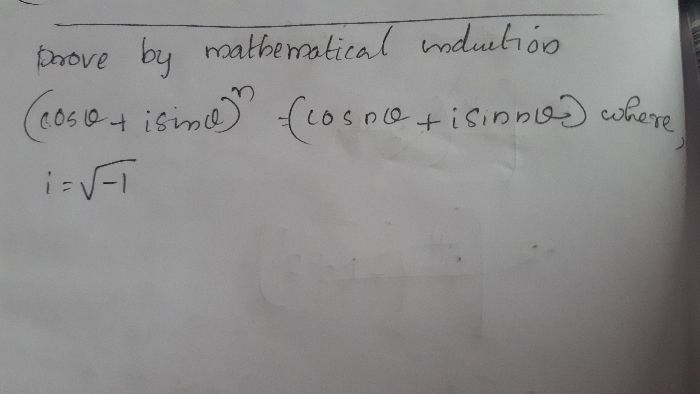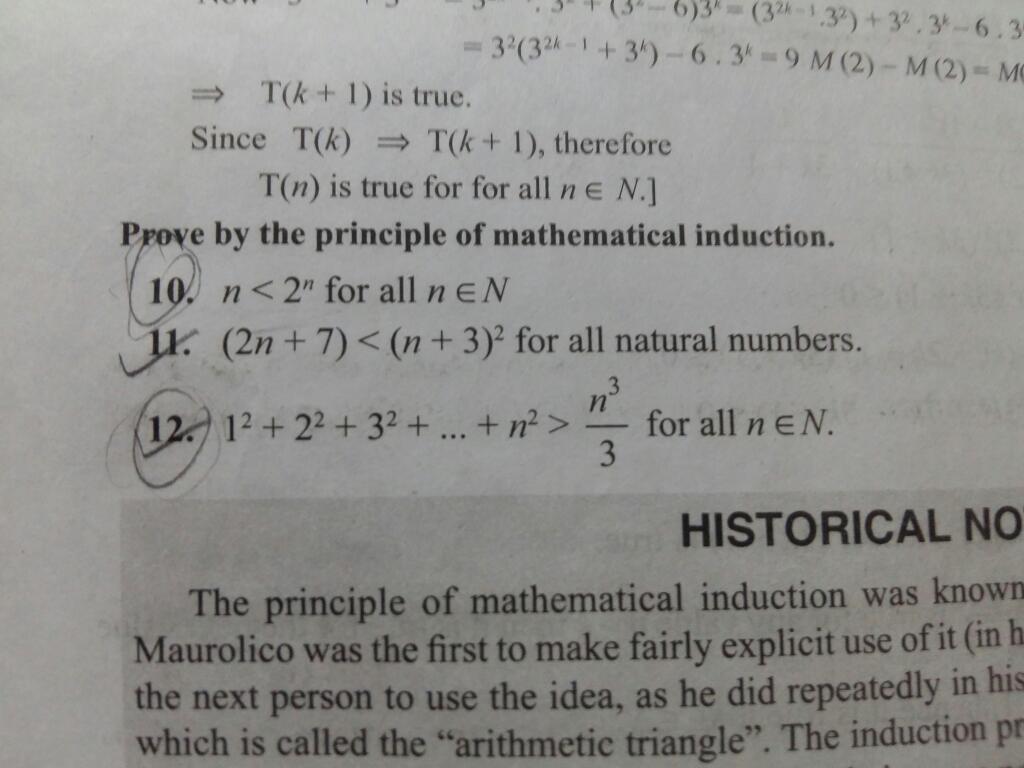CBSE Class 11-science Answered
(cos?+sin?)^n=cos n?+isin n?
Asked by narendra | 02 Mar, 2014, 10:28: AM
DeMoivre'sTheorem: If z is any complex number,  and n is a natural number, then
and n is a natural number, then 
 and n is a natural number, then
and n is a natural number, then 
Let us prove this above theorem by the method of induction.

Now let us assume that the theorem is true for n = k and we need to prove that the theorem is true for n = k + 1.
Since the theorem is true for n = k, we have,

Consider

Thus the theorem is true for n = k + 1.
Therefore, the theorem is proved.
Answered by | 02 Mar, 2014, 05:08: PM
Concept Videos
CBSE 11-science - Maths
Asked by keeruzzzzz | 11 Mar, 2020, 07:35: PM
CBSE 11-science - Maths
Asked by syedaliasad649 | 01 Oct, 2019, 07:07: PM
CBSE 11-science - Maths
Asked by lovemaan5500 | 02 Feb, 2019, 08:24: PM
CBSE 11-science - Maths
Asked by Topperlearning User | 14 May, 2014, 03:21: PM
CBSE 11-science - Maths
Asked by Topperlearning User | 04 Jun, 2014, 01:23: PM
CBSE 11-science - Maths
Asked by Topperlearning User | 04 Jun, 2014, 01:23: PM
CBSE 11-science - Maths
Asked by Topperlearning User | 04 Jun, 2014, 01:23: PM
CBSE 11-science - Maths
Asked by Topperlearning User | 07 Aug, 2014, 08:49: AM
CBSE 11-science - Maths
Asked by Topperlearning User | 15 May, 2014, 10:48: AM
CBSE 11-science - Maths
Asked by Topperlearning User | 04 Jun, 2014, 01:23: PM









 n(3n-1)
n(3n-1)